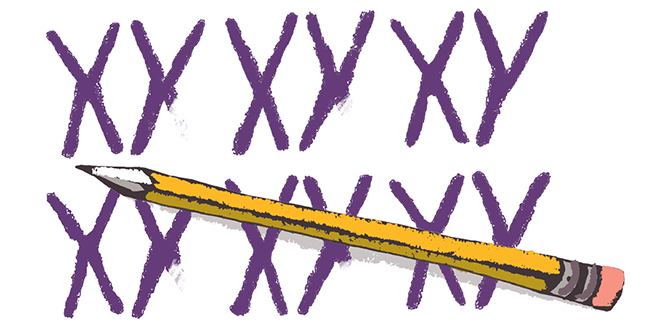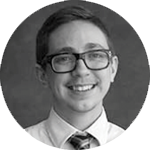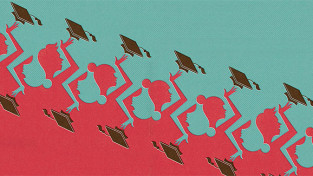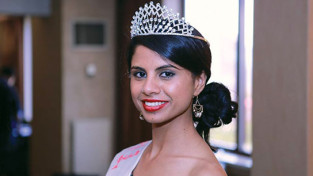My Voice: Being Transgender at Mount Holyoke

At the State University of New York at Oneonta, I work with transgender and gender non-conforming college students. In addition to the typical anxieties of first-year students, these students often have added burdens, like dealing with verbal harassment or a lack of safety in bathrooms. My job is to advocate for them and provide resources, a safe space, and support.
When I entered Mount Holyoke as a first-year student in the fall of 2002, I experienced many typical feelings—uncertainty, homesickness, excitement—but I also carried a burden. I felt a discomfort interacting with the world—a feeling that I had a hard time defining or even talking about. Because while most of my peers were at ease with their assigned sex at birth, I was not. It was at Mount Holyoke that I began to explore how I might become more comfortable in my body. Now known as gender dysphoria, the term that defines my experience did not yet exist in popular discourse when I was an undergraduate.
At Mount Holyoke, I learned an ethic for approaching life.— Elliot Ruggles ’06
I am so proud of my Mount Holyoke education—an experience that was a privilege to me. Yet, as a de facto man, I have reflected deeply about my position in this world as a Mount Holyoke alum and my place in general within feminist communities. Last summer, I traveled back to Mount Holyoke for the first time since beginning testosterone treatment and having “top surgery.” In other words, I returned to campus as someone perceived by the world as a man.
My most formative memories of being able to express my gender authentically happened at Mount Holyoke. Whether it was dating, dressing for a Drag Ball, or being able to speak my mind in class without fear of being seen as “too smart,” I had freedom in this community that I had not otherwise been granted. I came to know people at MHC with a diversity of gender expressions not represented in the Massachusetts suburbs where I grew up. Along with these interactions came a chance for me to imagine a different future for myself. It wasn’t always easy. There were lots of questions about whether someone perceived as male could be a true feminist, and I did not always feel that there were spaces in my Mount Holyoke community to voice what I was going through.
But at MHC I learned an ethic for approaching life. I learned about social justice, critical thinking, feminist ideology, and how to listen to that little voice inside myself that helps me live an authentic and fulfilling life.
Expressing myself in a masculine way—beginning at college—made me feel as if a weight had been lifted. When people ask about my gender identity, I prefer to use the term transman or to define myself as a man with experience living in the world as a woman. But I also recognize that most people who meet me will never know that part of my history.
When I finally reconciled my decision to physically transition, I promised to embody what men can be in the world instead of what most men currently are. Now, as an academic, queer, and feminist community organizer and activist, I have dedicated my life’s work to combating misogyny, homophobia, and transphobia for all those affected by gender oppression. And I am proud to say that my alma mater is also actively engaged in this pursuit.
—By Elliot Ruggles ’06

This article appeared in the winter 2015 issue of the Alumnae Quarterly.
Have an opinion to share?
Pitch your topic to us at quarterly@mtholyoke.edu.
—Illustration by Kim Rosen
January 18, 2015









Leave a Reply